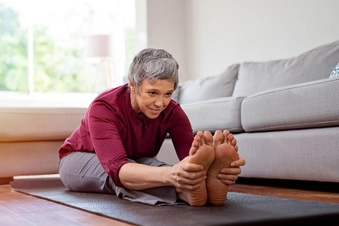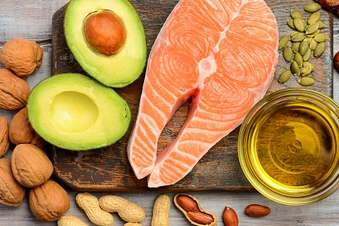Tips to Ease Stomach Pain From Exocrine Pancreatic Insufficiency

Adjust Your Meds
Stomach pain could be a sign your treatment isn’t working. Your doctor may try different doses of your therapies (such as pancreatic enzyme replacement therapy, or PERT) to see if a bit of fine-tuning could make you feel better.

Snack Small
Eating light bites every couple of hours is easier on the stomach than sitting down to three big meals. Try six small meals throughout the day to give your belly a break from heavy digesting.

Exercise
Even a short walk around your neighborhood can ease stress, nausea, depression, and pain. Start small if you haven’t been active -- go for 5-10 minute strolls outdoors. You can step it up over time as you start to feel stronger.

Practice Relaxation
Pain makes you tense, and tension keeps pain going. Relaxation techniques like yoga, breathing exercises, and visualization can relax your body and ease pain.

Meditate
Pausing to quiet your body and mind can help you feel more in control of chronic pain. Choose a comfy spot, shut out distractions, and find at least 15 minutes each day to sit in silence.

Scale Back on Fatty Foods
EPI keeps your body from breaking down fats the way it should. Keep things simple for your stomach. Choose foods with “healthy” fat like nuts, avocados, fish, and seeds. Skip the less healthy fat fare, such as dishes full of butter or lard, whole milk, red meat, and cheese.

Drink Up
It’s easy to get dehydrated when you have EPI. Carry a water bottle with you during the day, and drink from it often. Having a prop will serve as a reminder to get your fluids in.

Avoid Alcohol
Beer, wine, and liquor make it even harder for your body to absorb fat. They can also harm your pancreas over time. Going dry can help your stomach work better.

Ask About Medication
Your doctor can suggest meds to help control the discomfort in your stomach. These may be over-the-counter drugs or something they can prescribe for you.

Take Vitamins
Ask your doctor if supplements could help your stomach pain. Fat-soluble vitamins like A, D, E, and K may put back some of the nutrients you need and ease your quease.

Don’t Smoke
Besides being bad for your overall health, smoking isn’t good for stomach pain from EPI. Find a method that works for you and kick the habit. Your doctor can help you figure out where to start.

Get a Massage
A session with a licensed massage therapist can help your whole body unwind. It can improve your circulation and help loosen muscles you’ve been holding stiff from pain.
Show Sources
IMAGES PROVIDED BY:
1) monkeybusinessimages / Getty Images
2) Daisy-Daisy / Getty Images
3) monkeybusinessimages / Getty Images
4) Ridofranz / Getty Images
5) Daisy-Daisy / Getty Images
6) JulijaDmitrijeva / Getty Images
7) Creative-Family / Getty Images
8) BrianAJackson / Getty Images
9) 18percentgrey / Getty Images
10) pinkomelet / Getty Images
11) ChristAt / Getty Images
12) bernardbodo / Getty Images
SOURCES:
BMC Medicine: “Practical guide to exocrine pancreatic insufficiency – Breaking the myths.”
Loma Linda University Health: “Exocrine Pancreatic Insufficiency (EPI).”
The National Pancreatitis Foundation: “Complementary Pancreatitis Therapies.”
World Journal of Gastroenterology: “Yoga: A tool for improving the quality of life in chronic pancreatitis.”
Mayo Clinic: “Stress management,” “Pancreatitis.”
Academy of Nutrition and Dietetics: “Choose Healthy Fats.”
Harvard Health: “The truth about fats: the good, the bad, and the in-between.”
Medscape: “Exocrine Pancreatic Insufficiency Treatment & Management.”